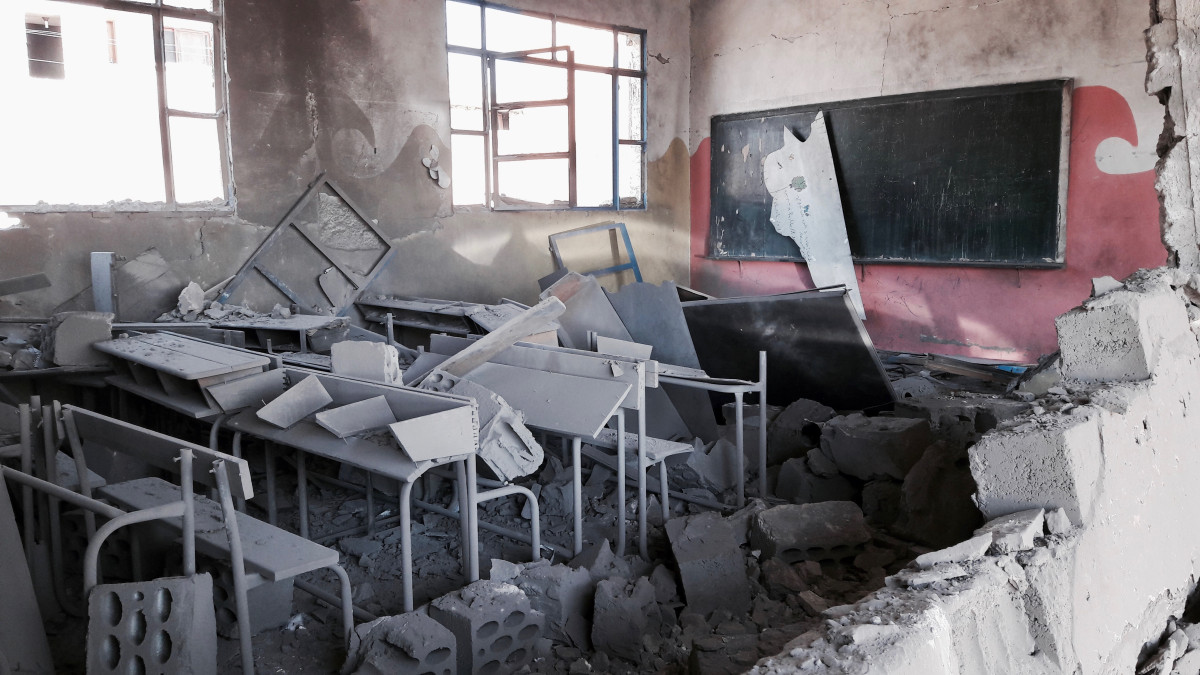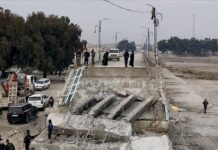
A report released by the Syrian Civil Defense, also known as the White Helmets, highlights a significant rise in deliberate attacks on schools in northern Syria. The findings point to a pattern of destruction targeting educational facilities and exacerbating the region’s already dire humanitarian crisis.
The report, published in November 2024, documents a 200% increase in attacks on schools between September 2023 and September 2024 compared to previous years. This alarming escalation underscores the ongoing disregard for international humanitarian law in a region already battered by years of conflict.
The report estimates that more than 1,054 schools in northwestern Syria have been damaged or destroyed since the start of the Syrian conflict. Between October 2023 and September 2024 alone, there were 43 documented attacks on schools, compared to just 8 in the same period between 2022 and 2023. These attacks have left hundreds of schools non-operational, further straining a crumbling education system.
The most heavily targeted areas include Idlib, Sarmada, Ariha, and Afes, many of which also serve as shelters for internally displaced persons (IDPs). The attacks, often coinciding with areas hosting displaced families, appear calculated to maximize the disruption of community support networks.
The destruction of schools has displaced more than 2.45 million children from educational opportunities across Syria, with 69% of children in Idlib and 38% in Aleppo out of school. The report highlights the lasting psychological and emotional toll on children, with many suffering from post-traumatic stress disorder (PTSD), anxiety, and depression.
“Children’s mental health is often overlooked in the immediate aftermath of these attacks,” the report states. “Long-term exposure to violence and the destruction of their schools has created a pervasive sense of fear and insecurity.”
The crisis has also forced children to travel greater distances for education, placing them at increased risk of harm. Many schools that remain functional are overcrowded and unsuitable for effective learning, exacerbating educational disparities and illiteracy rates.
Schools are protected as civilian objects under international humanitarian law, making their deliberate targeting a violation of established legal norms. The report asserts that the systematic destruction of education infrastructure in northern Syria constitutes a war crime.
“These attacks show a blatant disregard for international law,” the White Helmets wrote. “The targeting of schools has not only destroyed infrastructure but has also disrupted children’s futures and deprived them of their basic right to education.”
The White Helmets have called for immediate international intervention to protect children and hold perpetrators accountable. The report urges the international community to strengthen legal frameworks, ensure justice, and implement measures to safeguard educational institutions during conflicts.
The group has also recommended that Syria adopt the Safe Schools Declaration, an internationally recognized framework launched in 2015 to protect education during armed conflict. While 120 nations have endorsed the declaration, Syria remains absent from its list of signatories.
The White Helmets warn that the targeted destruction of schools is part of a broader campaign to undermine the social fabric of northern Syria. Coupled with airstrikes, artillery attacks, and the displacement of families, the attacks on schools deepen the region’s humanitarian crisis and erode the future prospects of its children.
“There is an urgent need for accountability,” the report concludes. “Protecting Syria’s children and ensuring their access to education is not just a legal obligation but a moral imperative.”
As international attention shifts to the escalating crises in other parts of the Middle East, the White Helmets’ report serves as a sobering reminder of the protracted suffering in Syria and the enduring consequences of attacks on the nation’s most vulnerable.








